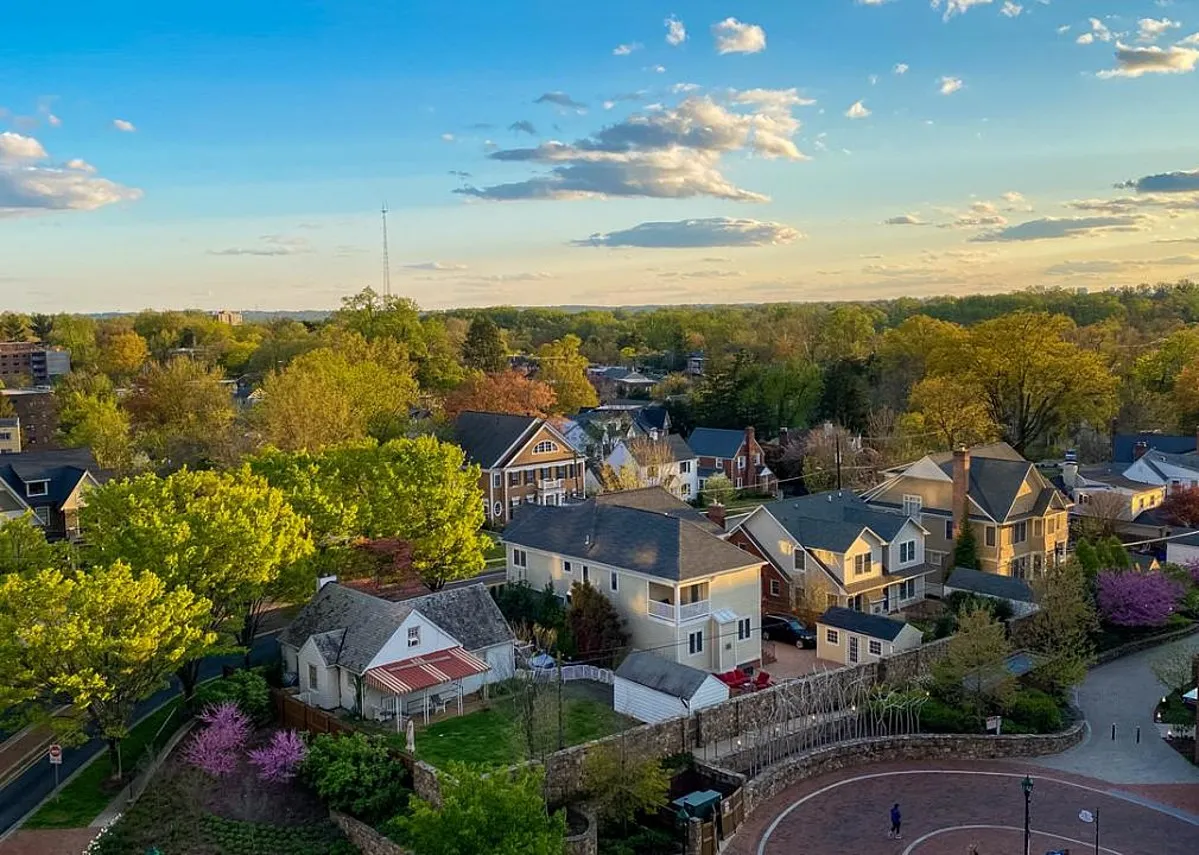
A town is a human settlement that is smaller than a city but larger than a village. It is typically characterized by a central business district, residential areas, and basic infrastructure such as roads, water supply, and sewage system.
Towns have a long history dating back to ancient times, and they have evolved over the centuries to become important centers of commerce, industry, and culture. They are often located in rural areas or on the outskirts of cities, and they serve as hubs for surrounding villages and farmland.
Some common features of towns include:
- Central business district: This is the main commercial area of the town, where shops, restaurants, and other businesses are located.
- Residential areas: These are the neighborhoods where people live, often with a mix of single-family homes, apartments, and condominiums.
- Basic infrastructure: This includes roads, sidewalks, water supply, sewage system, and public transportation such as buses or trains.
- Community facilities: Towns often have community facilities such as schools, libraries, community centers, and parks.
- Local government: Towns have their own local government, which is responsible for providing services and maintaining public safety.
Towns are important because they provide a sense of community and a central location for people to live, work, and access services. They also play a critical role in the economy, serving as centers of commerce and industry, and providing jobs and opportunities for local residents.
Some examples of towns include:
- Small towns: These are towns with a population of less than 1,000 people. They are often located in rural areas and have a strong sense of community.
- Suburban towns: These are towns located on the outskirts of cities, often with a mix of residential and commercial areas.
- Tourist towns: These are towns that are popular tourist destinations, often due to their natural beauty, historical significance, or cultural attractions.
- Industrial towns: These are towns that have developed around a specific industry, such as manufacturing or mining.
Here's a deeper dive into the essence of a town:
Key Characteristics:
- Size and Population: Compared to sprawling cities, towns are smaller and boast a less dense population. Think cozy streets, familiar faces, and a slower pace of life.
- Local governance: Unlike villages that often fall under the jurisdiction of larger towns or cities, towns typically have their own local government and administration, managing community affairs.
- Economic Hub: While not as bustling as urban centers, towns often have their own economic pulse, with local businesses, markets, and industries catering to the needs of residents.
- Community Spirit: A strong sense of community is a defining feature of towns. People know each other, participate in shared events, and support local businesses, creating a unique atmosphere of belonging.
- Diverse Charm: From historic old towns steeped in tradition to modern vibrant towns buzzing with innovation, each town has its own character and charm, showcasing local culture, heritage, and natural beauty.
Beyond the Checklist:
Of course, being a town is more than just ticking off boxes on a list. It's about the unique tapestry woven by its people, its history, and its surroundings. Each town has its own story to tell, shaped by:
- Location: Nestled amidst mountains, bordering a coastline, or sprawled across fertile plains, the landscape shapes the life and identity of a town.
- History: Whether founded centuries ago or a recent development, a town's past influences its present, with historical landmarks, traditions, and cultural nuances adding layers of intrigue.
- People: The heart and soul of a town lie in its residents. Their stories, skills, and aspirations contribute to the vibrant spirit and unique character of the place they call home.
The Allure of Towns:
In a world dominated by big cities, towns offer a welcome respite. They provide a sense of community, connection, and familiarity that often gets lost in the urban hustle. From picturesque main streets and friendly faces to local festivals and hidden gems, towns hold a special charm that continues to attract and inspire.
So, when you imagine a town, think beyond just a small city. It's a place where life unfolds at a gentler pace, where community thrives, and where stories are written in every corner. It's a place that whispers, "Welcome" and makes you feel like you belong.
